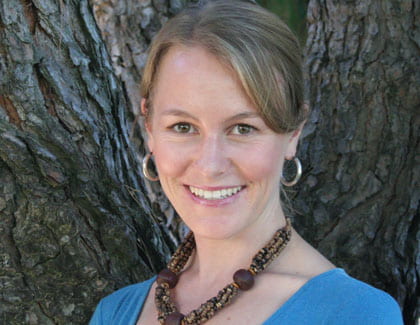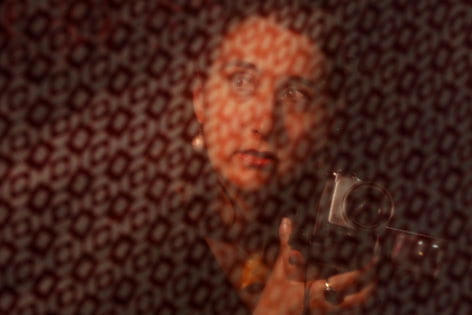A sense of purpose
Jennifer Alloo followed an unlikely path to UC Irvine School of Medicine

There are many roads to becoming a doctor, many paths that lead to a vocation in medicine. Jennifer Alloo’s journey has taken her from Berkeley to Paris, to destitute villages in Africa, and now to UCI. For the first-year student in the School of Medicine, the road to practicing medicine wasn’t always clear – or easy.
As an undergraduate at UC Berkeley, Alloo (pronounced Aloe) excelled at science but felt something was missing. She wanted to explore deeper issues, so she dove into a major in French and the many layers of meaning that French literature offered her.
“I love science, especially chemistry, but I needed self-reflection, which is definitely provided in French literature,” she says.
Still, medicine was always in the back of her mind. While studying at the Paris Center for Critical Studies during her junior year, she was inspired to put the two disciplines together after a philosophy professor told her, “Jennifer, you should be a doctor.”
She began applying philosophy and literature to healthcare. Back at Berkeley, she took pre-med courses and studied the concept of race and how it influenced healthcare in Africa. She graduated in 2004 and spent a year doing clinical work with an orthopedic surgeon in San Francisco. Then she headed to West Africa on a Fulbright scholarship. Research wasn’t enough; she wanted to heal people.
“I’m a very intellectual person, but I’m also hands-on,” she says. “My idea of medicine is a mélange of the two.”
Africa “felt like another universe” compared to her Northern California roots. She didn’t stay in the “huge houses or fancy hotels” where the wealthy – and mostly white – people stayed behind barbed wire. Instead she lived with a large African family in a small concrete house with a tin roof and outhouse in the poor yet bustling city of Cotonou in Benin.
She worked as an intern at the national hospital and a struggling inner city clinic. She delivered babies and treated patients for malaria, dysentery and AIDS. She contracted malaria and shigellosis or bacillary dysentery, a food-borne illness.
“Patients would come in and say, ‘I’m here because I’m sick. I have 20 cents in my pocket. What can you do for me?’”
She wore the colorful African dress and attended religious festivals, “colorful, loud, joyful” celebrations with agile dancers and voodoo priests. She traveled to the bush country to visit the native healers. She earned their trust; one healer allowed her into his carefully guarded botanical garden to see the plants he grew for medicine.
“The work of the healers opened my eyes to the possibilities of providing a combined healthcare of conventional and traditional practices,” she says.
When she returned home, Alloo could see her career path clearly. She applied to medical schools across the country, and chose UCI because of its focus on caring for underserved communities. She’s especially interested in the innovative PRIME-LC program, which trains students to work in Latino communities, and she wants to learn Spanish. And someday, she says, the path will lead her back to Africa.
“There are hundreds of thousands of people who don’t get care and die because no doctor wants to be there,” she says. “I want to return to Africa and continue to build the partnerships that work toward healing the African people. But when I go back, I’ll have my M.D.”
